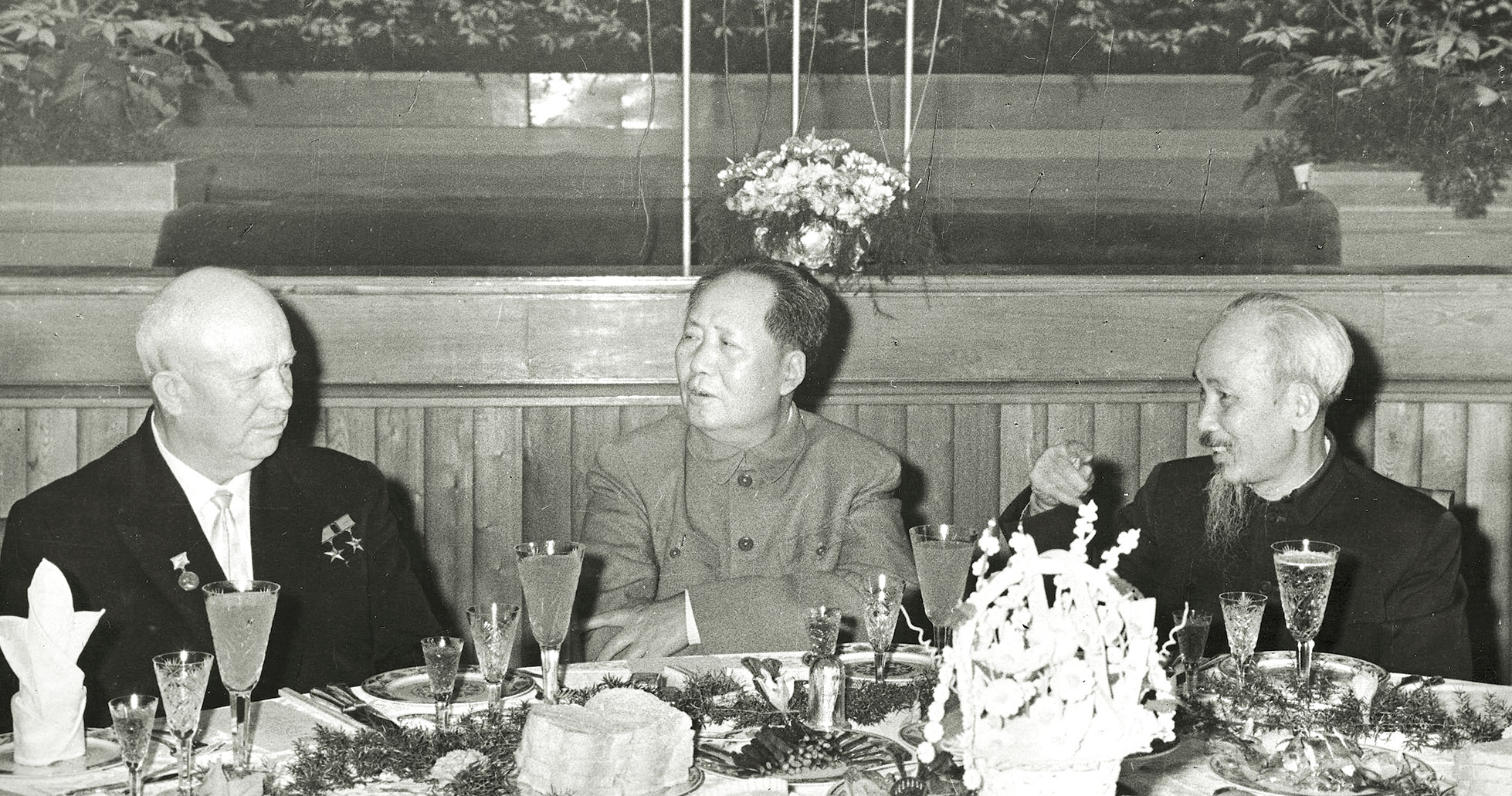After an international agreement in 1954 split Vietnam in two, communist China became an important source of military aid for Ho Chi Minh’s communist government in North Vietnam as a counterweight to the Western democracies supporting South Vietnam. China’s leader, Mao Zedong, wanted the Chinese Communist Party to expand its influence in Asia by supporting wars of national liberation. In the early 1950s, when communist North Korea invaded South Korea, the United Nations under U.S. leadership struck back and marched into North Korea, bringing China into the war.
Similarly, China promised to support Ho Chi Minh’s government as Hanoi expanded its war in the South and pledged to come to North Vietnam’s aid if the United States attacked. Between 1955 and 1963, China provided 240,000 infantry weapons, 2,730 artillery pieces, 15 aircraft, 28 naval vessels and plenty of ammunition and spare parts.
When the U.S. bombing of North Vietnam began in spring 1965, China increased its military aid. It also sent support personnel but insisted that none of them operate near the Demilitarized Zone, where they might come into direct contact with American troops. Conversely, U.S. policymakers, remembering Korea, feared that an aggressive drive into North Vietnam for an all-out victory would again bring in Chinese troops.
The Chinese position was nuanced. If the United States invaded the lower part of North Vietnam but didn’t move beyond there, China would boost its military aid as much as Hanoi needed to repel the invasion with its own troops, according to research first published by Chinese scholars in the mid-1990s.
However, if the United States invaded North Vietnam’s upper regions or began bombing targets in southern China, Mao was prepared to send combat units into North Vietnam. The fears of American policymakers were not irrational. If U.S. ground forces approached Hanoi, Chinese intervention was likely.
From early August 1965 to March 1969, 16 Chinese anti-aircraft artillery divisions with a total of 150,000 personnel served in North Vietnam. During that period, Chinese engineer units with a combined strength of 170,000 personnel repaired roads, bridges and airfields damaged by the American bombing. More than 1,100 Chinese died and 4,300 were wounded in U.S. airstrikes. When the bombing campaign ended in November 1968, China withdrew its support troops.
Despite anecdotal stories of “Chinese advisers” being spotted on South Vietnam’s battlefields, there is no evidence from Vietnamese or Chinese sources that any Chinese troops served in the lower part of North Vietnam—much less Laos, Cambodia or South Vietnam. Indeed, China wanted to avoid a confrontation with the United States, and North Vietnam wanted to keep the Chinese Communist Party out of Southeast Asia.
The sightings can be explained in other ways that are consistent with the historical evidence. Some North Vietnamese Army soldiers were recruited from tribal peoples who inhabited the northern and eastern mountains adjacent to China and Laos. Those tribes, ethnically distinct from the Vietnamese, trace their lineage to groups originating from southern China or other parts of Asia.
Dr. Erik Villard is a Vietnam War specialist at the U.S. Army Center of Military History at Fort McNair in Washington D.C.
This article appeared in the December 2020 issue of Vietnam magazine.





